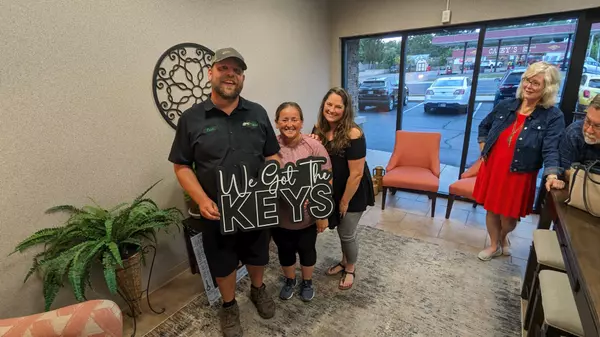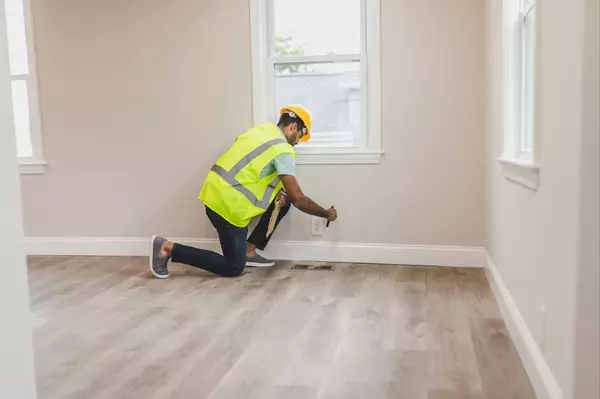
From Offer to Close: Understanding the Real Estate Transaction Timeline
The journey from making an offer on a home to finally closing the deal involves numerous steps and milestones. This guide provides a comprehensive breakdown of the transaction timeline, ensuring you’re prepared for every stage of the home-buying process. Overview of the Steps Between Offer and Closing After your offer is accepted, the real work begins. Several critical steps occur before you can officially become a homeowner. Here’s a high-level look at what to expect: 1. Contingencies Contingencies are conditions written into your offer that must be met for the deal to proceed. Common contingencies include: Inspection Contingency: Allows the buyer to back out or renegotiate based on inspection results. Appraisal Contingency: Ensures the property appraises at or above the purchase price. Financing Contingency: Protects the buyer if they are unable to secure a loan. 2. Inspections The home inspection is a critical step in evaluating the property’s condition. Additional specialized inspections, such as for mold, pests, or structural issues, may also be performed. 3. Appraisal The lender orders an appraisal to determine the property’s market value. This ensures the home is worth the amount being financed. 4. Final Loan Approval Once contingencies are cleared, your lender performs a final review of your financial documents to approve the loan. 5. Closing Disclosure You’ll receive a closing disclosure at least three days before closing, detailing the loan terms, closing costs, and other key information. Typical Timeline and Variations The average timeline from offer to close is about 30 to 45 days. However, this can vary based on factors like market conditions, lender efficiency, and the complexity of the transaction. Standard Timeline Day 1: Offer accepted. Day 2-5: Earnest money deposit submitted. Day 5-10: Inspections completed. Day 10-20: Appraisal conducted and reviewed. Day 20-30: Final loan approval. Day 30-45: Closing day. Possible Delays Delays can arise for various reasons, including: Issues uncovered during inspections. Low appraisals requiring renegotiation. Delays in obtaining loan approval. Title issues that require resolution. Being aware of these potential hurdles can help you stay prepared and proactive. Key Milestones Along the Way Several important deadlines and milestones will keep the process on track. Missing these deadlines could jeopardize the transaction, so staying organized is crucial: Earnest Money Deposit This deposit, typically 1-3% of the purchase price, demonstrates your commitment to the transaction. It must be submitted within a few days of the offer being accepted. Inspection Period Schedule and complete all inspections within the designated period (usually 7-10 days). Review the findings and decide whether to proceed, renegotiate, or withdraw. Appraisal Deadline The appraisal is generally completed within 10-20 days of the offer being accepted. Ensure your lender receives the report promptly to avoid delays. Final Walkthrough Conducted a day or two before closing, the final walkthrough ensures the property is in the agreed-upon condition and any negotiated repairs have been completed. Your Role in Keeping Things on Track As your real estate professional, my job is to manage the transaction timeline and handle any issues that arise. Here’s how I help keep everything running smoothly: Monitoring Deadlines: I keep track of key dates and ensure all parties meet their obligations on time. Facilitating Communication: I act as the liaison between you, the seller, the lender, and other stakeholders to ensure seamless coordination. Resolving Issues: If problems occur, I provide guidance and solutions to help keep the transaction moving forward. With careful planning and active management, the path from offer to close can be a smooth and rewarding experience.

What Is A Home Appraisal And How Much Does It Cost?
In the home-buying process, an appraisal plays a pivotal role in determining the property's value and ensuring you make a sound investment. Whether you're a first-time buyer or experienced in real estate, understanding the appraisal process can help you navigate challenges, protect your finances, and secure your dream home. This guide covers the essentials, including what an appraisal is, how it impacts offers, handling appraisal gaps, and preparing for a fair market valuation. What an Appraisal Is and Why It’s Important An appraisal is an objective, professional assessment of a property's value, conducted by a licensed appraiser. Lenders require appraisals during the mortgage approval process to ensure the property’s value aligns with the loan amount. This protects the lender from over-lending and safeguards you as a buyer from overpaying. The Role of an Appraisal in Financing For buyers relying on a mortgage, the appraisal ensures the property is worth the amount being financed. The lender uses the appraised value to determine how much they are willing to loan. If the appraisal comes in lower than the purchase price, it can create financing challenges, which we’ll explore later. How Appraisals Are Conducted Site Visit: The appraiser visits the property to evaluate its condition, features, and any upgrades. Market Comparisons: They analyze comparable sales ("comps") in the area to determine market value. Property Analysis: Factors like location, size, amenities, and neighborhood trends influence the valuation. By providing an impartial valuation, appraisals help buyers and lenders ensure they are not overextending their financial resources. How Appraisals Impact Offers Appraisals directly influence the success of a real estate transaction. A property’s appraised value can confirm the purchase price, but discrepancies may require negotiation or other adjustments. Here’s how appraisals can impact your offer: Low Appraisals When the appraised value is lower than the offer price, lenders may limit the loan amount to the appraised value. For example, if you offer $300,000 for a home but it appraises for $280,000, the lender will base the loan on $280,000. This can leave you responsible for covering the difference or renegotiating the deal. High Appraisals On the other hand, if the appraisal comes in higher than the offer price, it’s a win for the buyer. You effectively gain instant equity, as the home is worth more than you are paying for it. High appraisals rarely create issues and often strengthen the buyer’s position. Handling Appraisal Gaps An appraisal gap occurs when the appraised value is lower than the agreed-upon purchase price. This situation can be challenging, but there are strategies to navigate it: Options for Buyers Negotiate with the Seller: Ask the seller to lower the price to match the appraised value. Many sellers are open to this to avoid losing the deal. Cover the Difference: If financially feasible, you can pay the gap out of pocket. This shows commitment but requires careful financial planning. Request a Reconsideration: If you believe the appraisal is inaccurate, you can challenge it by providing additional comps or correcting errors in the appraiser’s report. Walk Away: If no agreement can be reached, your purchase contract may allow you to exit the deal without penalty (if the financing contingency is in place). Handling appraisal gaps requires flexibility, clear communication, and a willingness to explore multiple solutions. Preparing for the Appraisal Preparation is key to ensuring the appraisal reflects the property’s fair market value. While the appraiser ultimately determines the value, taking proactive steps can help: What Sellers Can Do Highlight Improvements: Ensure the appraiser is aware of any renovations, upgrades, or new features. Stage the Home: A well-presented home creates a positive impression and can subtly influence the appraiser’s perception. Provide Documentation: Offer a list of recent updates and their costs to help justify the value. What Buyers Should Understand Fair Market Value: The appraisal aims to establish a price based on market trends and property specifics, protecting your investment. Be Informed: Review recent sales in the area to understand local market conditions. Stay Flexible: Be prepared to address potential gaps or discrepancies in the appraisal. Understanding the appraisal process and preparing for it helps ensure a smoother transaction and confidence in your investment. An appraisal is more than a formality—it’s a critical step in the home-buying journey that protects both buyers and lenders. By understanding what an appraisal entails, how it impacts offers, and how to navigate appraisal gaps, you can confidently approach this stage of the process. Whether it confirms the value of your dream home or uncovers potential pitfalls, the appraisal ensures you’re making a sound financial decision for your future.

What is a Home Inspection?
Purchasing a home is one of the most significant investments you’ll ever make, so it’s crucial to understand the home inspection process inside and out. A thorough home inspection helps you avoid costly surprises and ensures you're making an informed decision. Whether you are looking for "home inspectors near me" or wondering about "house inspection costs," this guide will cover everything you need to know about inspections, from asbestos testing to roof inspections and air quality assessments. What is a Home Inspection and Why is It Essential? A home inspection is a detailed evaluation of a property’s condition by a certified home inspector. This inspection typically includes an assessment of the home’s structure, systems, and components, such as plumbing, electrical, heating, cooling, and more. The main goal is to identify potential issues that could affect the home’s value, safety, and livability. Understanding this process is essential to avoid surprises down the road and ensure the home you purchase meets your needs and expectations. Think of a home inspection as your opportunity to find out the true condition of the house. It's like taking a car to a mechanic before purchasing it, ensuring that there are no hidden issues that could cost you later. How to Find the Right Home Inspector Near Me Finding the right "home inspector near me" can be a daunting task, but it’s essential to have a reliable expert on your side. Here are a few tips to help you find a certified, trustworthy inspector: Research and Reviews: Search for "house inspector near me" on trusted review platforms like Google or Yelp. Reviews and testimonials from other buyers can give you valuable insights. Certifications and Qualifications: Make sure the inspector holds certifications from reputable organizations like the American Society of Home Inspectors (ASHI) or the National Association of Home Inspectors (NAHI). Experience: Look for a professional with experience in the local market and specific inspection areas (like mold, foundation, and roof inspections). Home Inspection Cost: What to Expect One of the first questions buyers have when scheduling a home inspection is, "What is the home inspection cost?" The price can vary depending on several factors, including the home’s size, location, age, and the type of inspection you need. On average, home inspections cost between $300 and $500, but this is just for the basic inspection. If you need additional services such as a mold inspection and testing, asbestos testing, or a foundation inspection, the price can increase. Factors Influencing House Inspection Price Property Size: Larger homes require more time and a more thorough inspection, which can increase the cost. Location: Home inspection prices can vary based on your location. Urban areas may have higher costs due to demand and cost of living. Specialized Inspections: Adding inspections like crawlspace inspection, roof inspector services, or air quality testing will add to the overall cost. What Inspectors Look For During a House Inspection During a home inspection, the inspector will evaluate the property to ensure everything is functioning properly and to identify any existing or potential problems. Below are some key areas a home inspector will assess: Structure and Foundation Inspection The structure of a home, including the foundation, is one of the most critical aspects of an inspection. Cracks in the foundation, settling, or water damage can indicate major issues that need immediate attention. A house inspector near me will examine the foundation carefully, looking for signs of shifting or unevenness. If any problems are found, a more detailed foundation inspection may be required. Electrical, Plumbing, and HVAC Systems Inspecting the electrical system, plumbing, and HVAC (heating, ventilation, and air conditioning) systems is also a priority. Problems in these systems can be expensive to fix and could potentially pose health or safety risks. The inspector will look for outdated wiring, faulty plumbing, or poorly maintained HVAC systems. Roof and Attic Inspection The roof is one of the most expensive components of a house to replace, so having a qualified roof inspector is vital. The inspector will check for signs of wear and tear, missing shingles, and water damage. Additionally, they will inspect the attic for adequate insulation and ventilation. Crawlspace Inspection Crawlspaces can often be overlooked but are essential for ensuring a home’s overall integrity. A crawlspace inspection checks for moisture, mold, pests, and structural issues. It’s a crucial area, especially in older homes where the foundation may have been compromised over time. Mold and Asbestos Testing If you are buying an older home or a home in a damp environment, you may need to request specialized tests like mold inspection and testing. Mold can cause health problems and indicate hidden moisture issues. Asbestos testing may also be necessary in homes built before the 1980s, as this material can pose serious health risks. Home Air Quality Testing Air quality testing is a valuable inspection, especially in homes with older HVAC systems, poor ventilation, or in areas prone to pollution. It helps ensure that your future home offers a healthy living environment. Common Findings and How to Respond Home inspections often uncover issues that require attention. While some of these findings might seem alarming, many can be addressed or negotiated with the seller. Below are common inspection findings and how you should respond: Minor Issues Cosmetic Issues: These can include minor cracks in the wall or small dents in fixtures. They are not a major concern but can be used in negotiations for a price reduction. Electrical or Plumbing Problems: If the issue is minor (e.g., a leaky faucet or a non-functional light switch), it can often be fixed quickly by a professional. Major Issues Foundation Problems: Serious foundation issues, such as cracks or settling, may require extensive repairs. In this case, you should request a specialist’s opinion and negotiate repair costs or ask for a price reduction. Mold or Asbestos: These can be hazardous to your health and typically require remediation. You should get quotes from certified specialists and discuss them with the seller. Preparing for a Home Inspection To make the most of your home inspection, preparation is key. Here are a few tips to ensure everything runs smoothly: Attend the Inspection: If possible, attend the inspection in person. This allows you to ask the inspector questions and get immediate answers on any concerns you have. Make Sure the Inspector Has Access: Ensure that the inspector has access to all necessary areas of the house, such as the attic, basement, and crawlspace. Clear any obstructions before the inspection. Review the Report: After the inspection, you’ll receive a detailed report outlining the inspector’s findings. Take the time to review the report carefully and consult with your real estate agent about the next steps. Your Role in the Inspection Process As your agent, we’re here to guide you through the inspection process. We’ll help you interpret the findings, advise you on how to respond, and ensure that you’re protected. If necessary, we’ll assist in negotiating with the seller to address any issues discovered during the inspection. Remember, the home inspection process is your opportunity to ensure that the home you’re buying is safe, functional, and worth the investment. By understanding the inspection process, choosing the right inspector, and knowing what to look for, you’ll be in a stronger position to make informed decisions and negotiate effectively.
Categories
Recent Posts










